AHA Scientific Sessions 2024 Late-Breaking and Featured Science Collection
Published: 29 October 2024
-
Views:
 2109
2109
-
Likes:
 7
7
-
Views:
 2109
2109
-
Likes:
 7
7
-
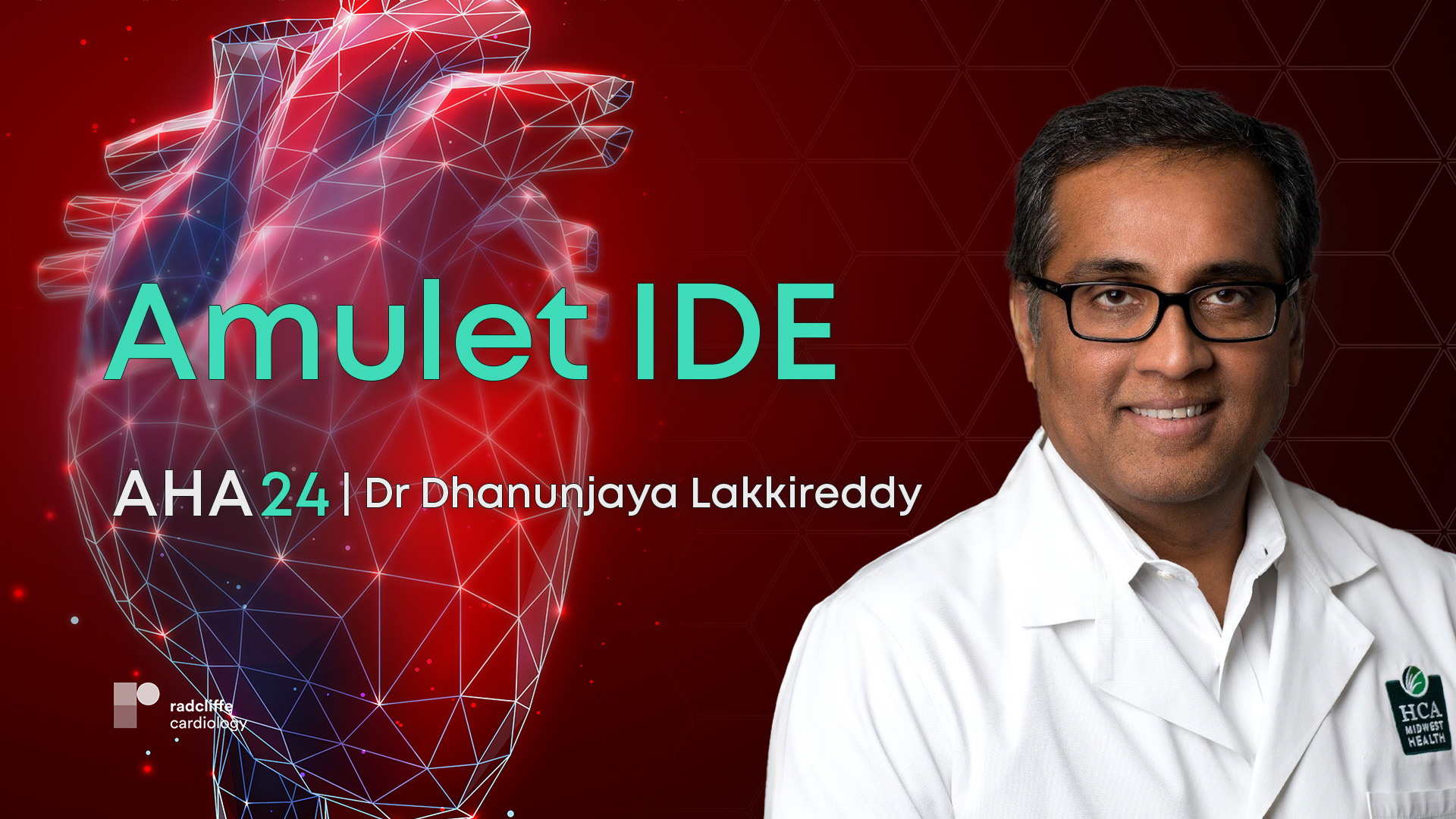 Up Next
Up Next -
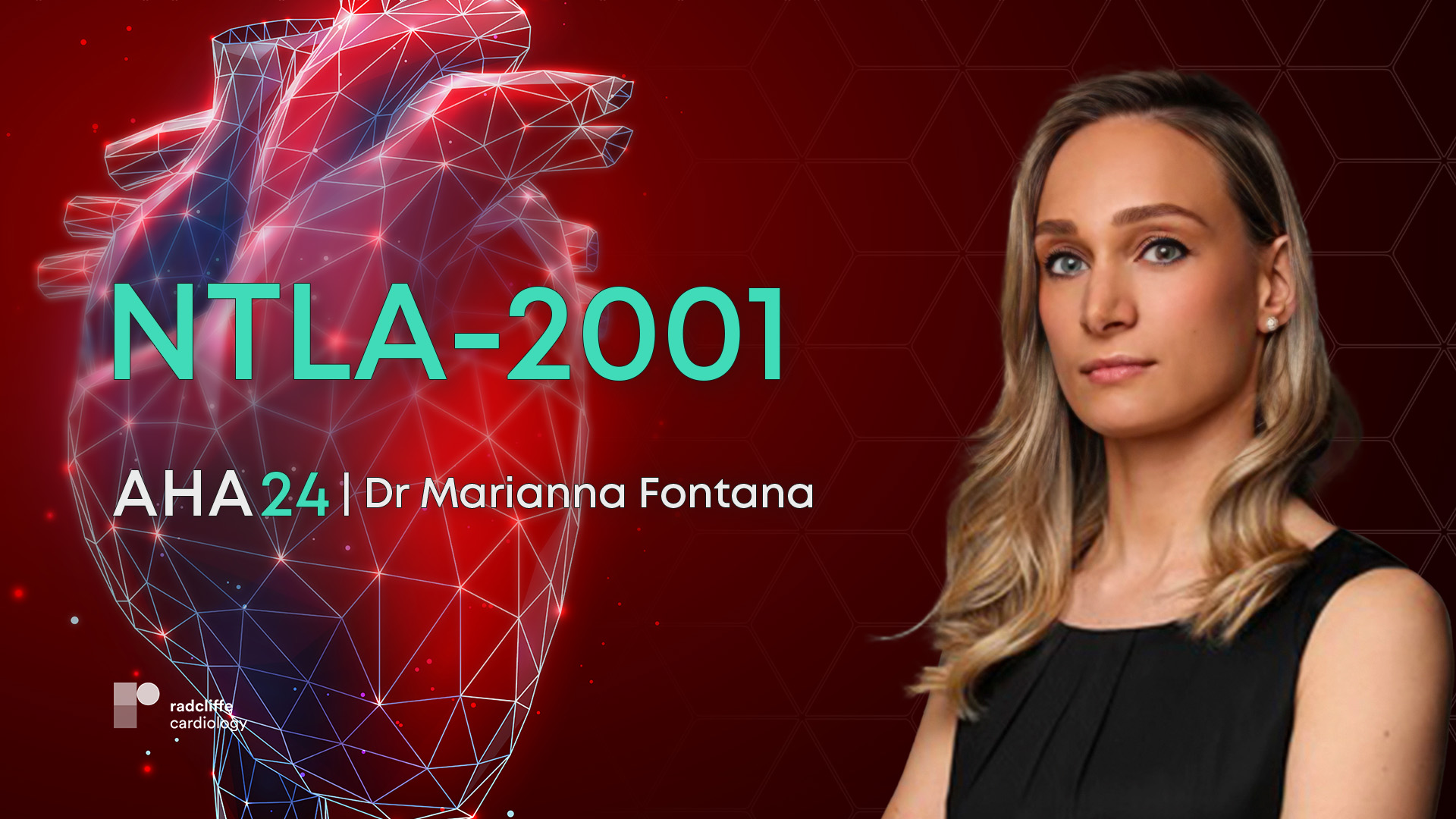 5m 6sPart 3 | Session 7 NTLA-2001 in Patients with Transthyretin Amyloidosis with Cardiomyopathy
5m 6sPart 3 | Session 7 NTLA-2001 in Patients with Transthyretin Amyloidosis with Cardiomyopathy -
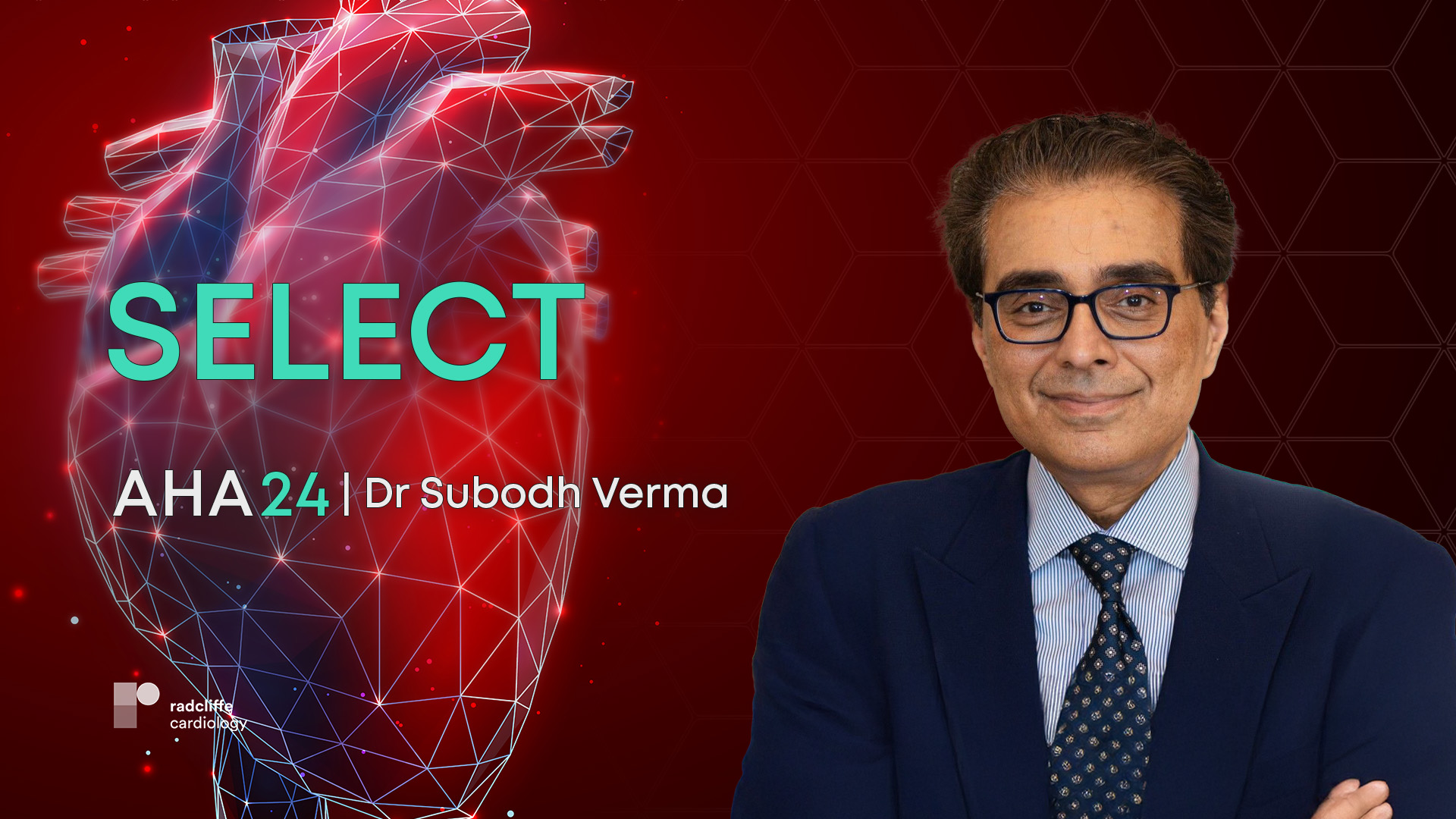 5m 7s
5m 7s -
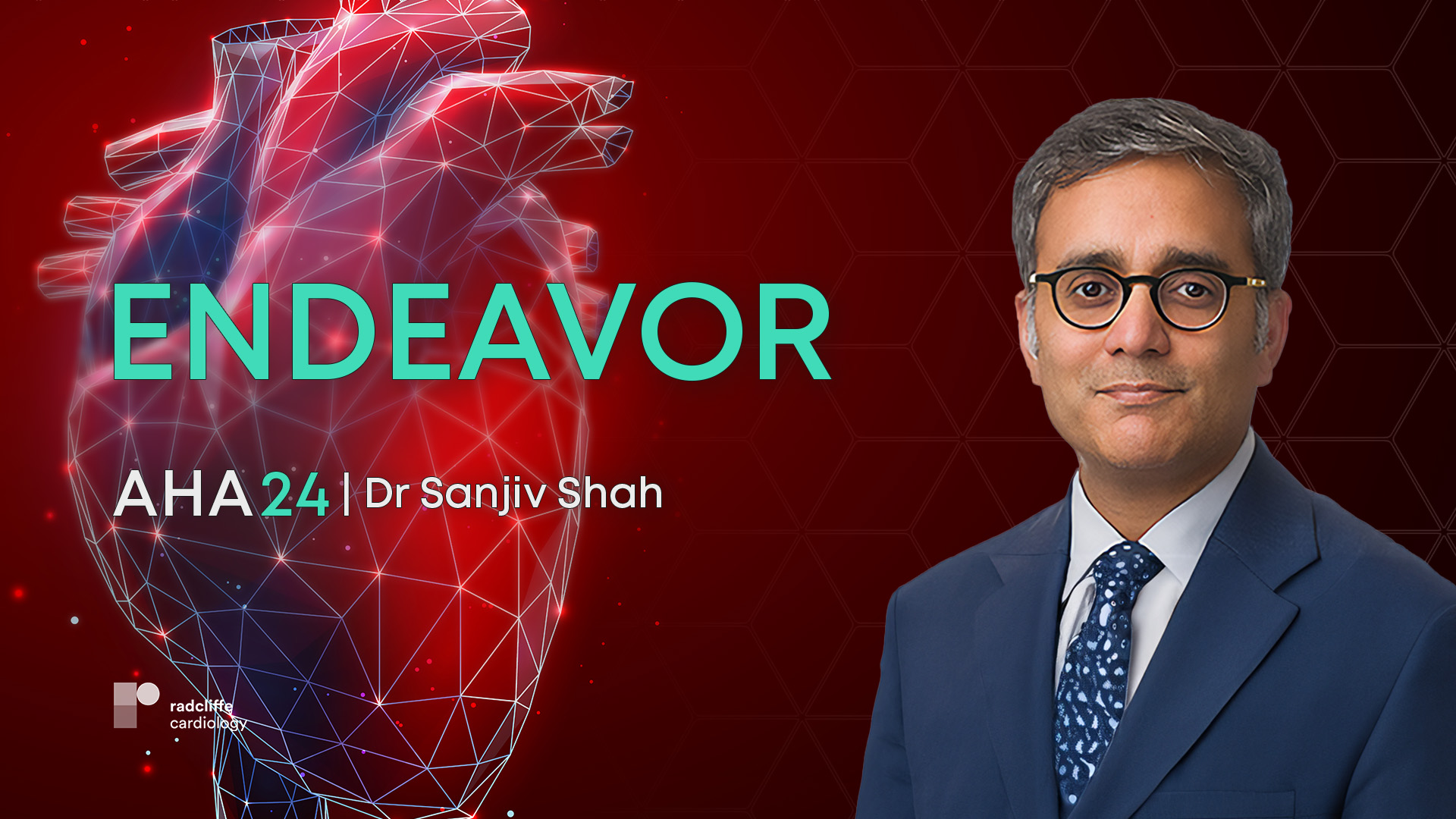 4m 30sPart 3 | Session 9 ENDEAVOR: Myeloperoxidase Inhibition with Mitiperstat in HFpEF
4m 30sPart 3 | Session 9 ENDEAVOR: Myeloperoxidase Inhibition with Mitiperstat in HFpEF -
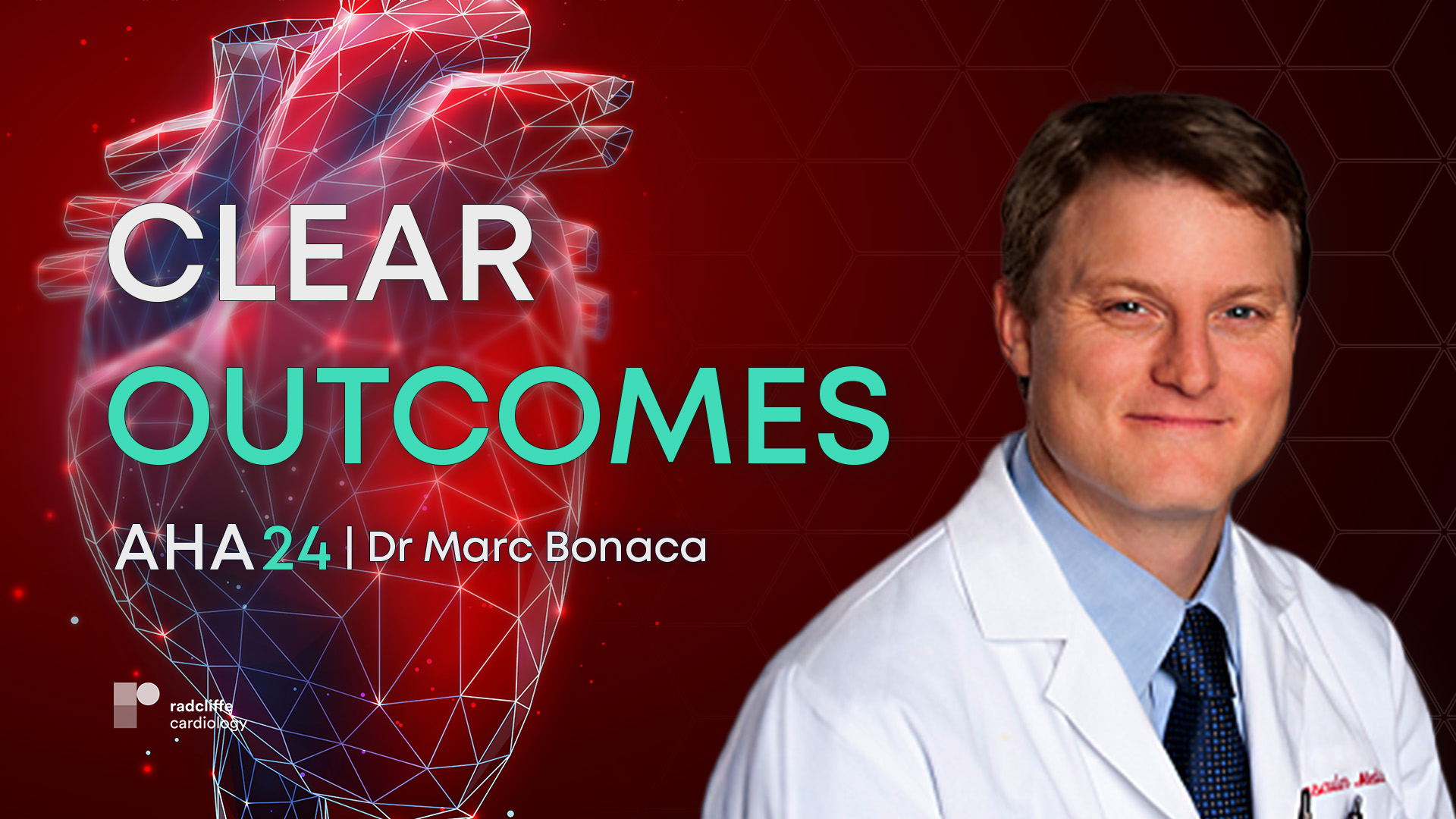 3m 49s
3m 49s -
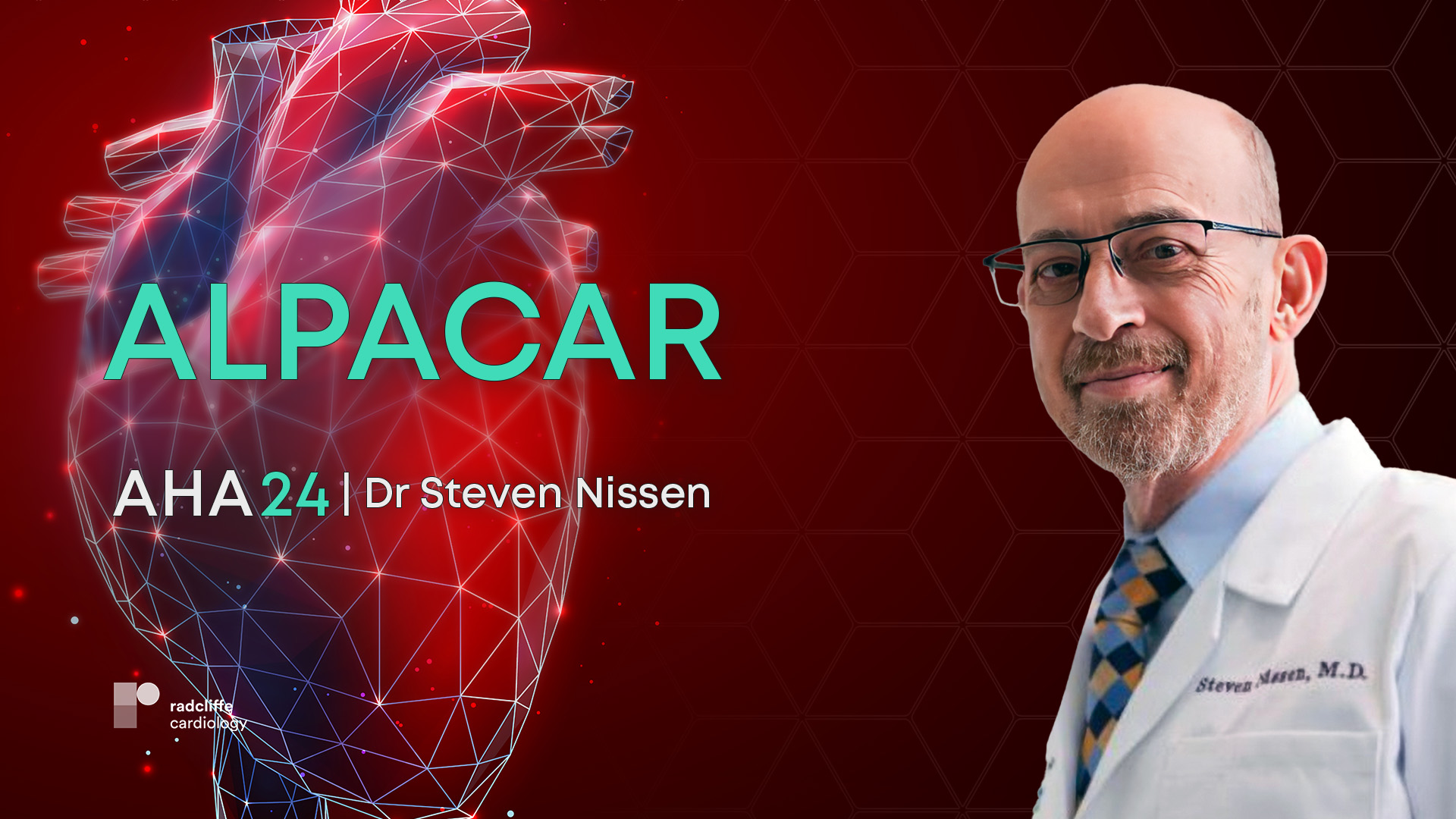 5m 28sPart 3 | Session 11 ALPACAR: Phase 2 Trial of Zerlasiran in High Risk Patients
5m 28sPart 3 | Session 11 ALPACAR: Phase 2 Trial of Zerlasiran in High Risk Patients -
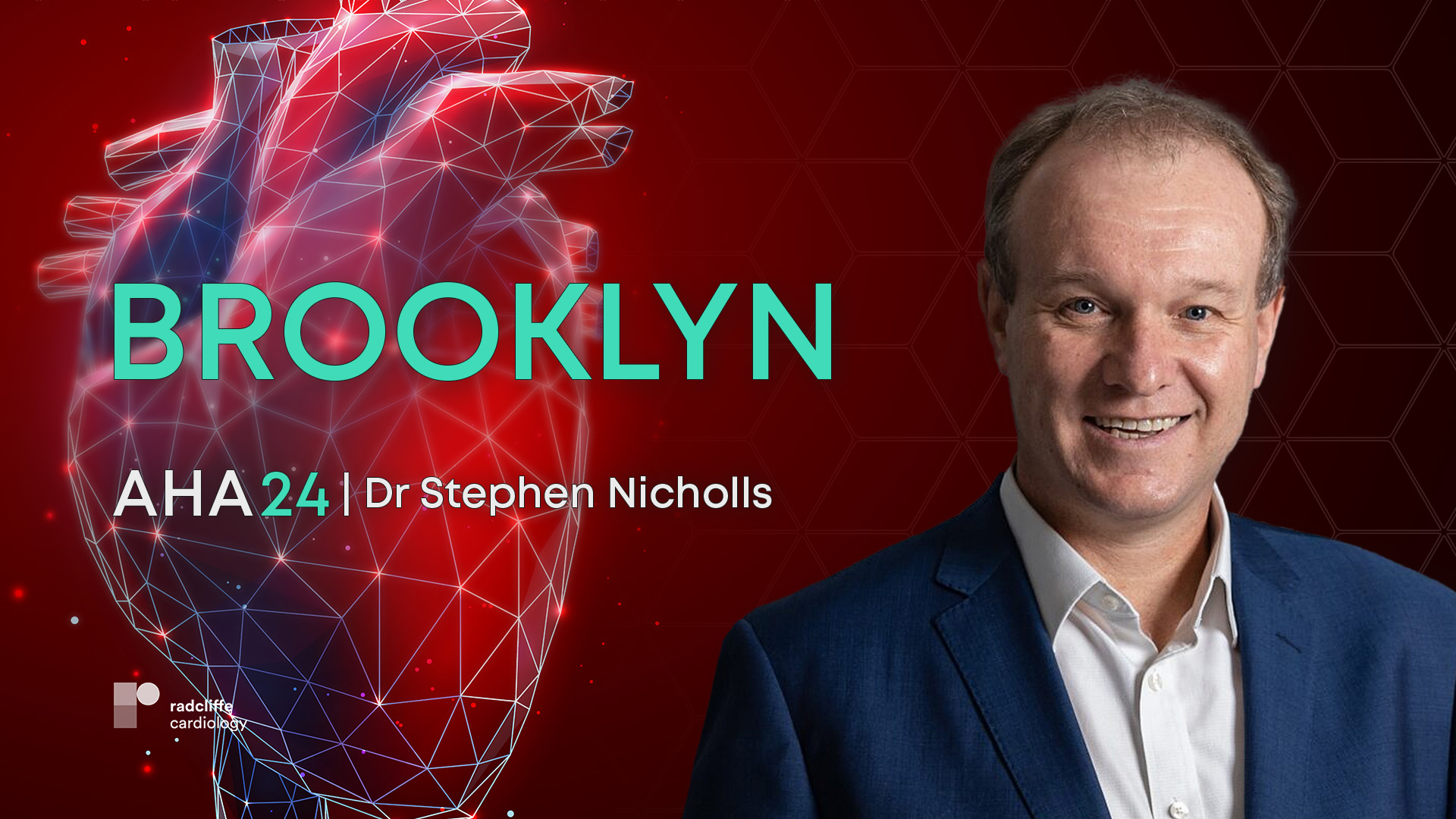 3m 44sPart 3 | Session 12 BROOKLYN: Safety and Efficacy of Obicetrapib in Patients with HeFH
3m 44sPart 3 | Session 12 BROOKLYN: Safety and Efficacy of Obicetrapib in Patients with HeFH -
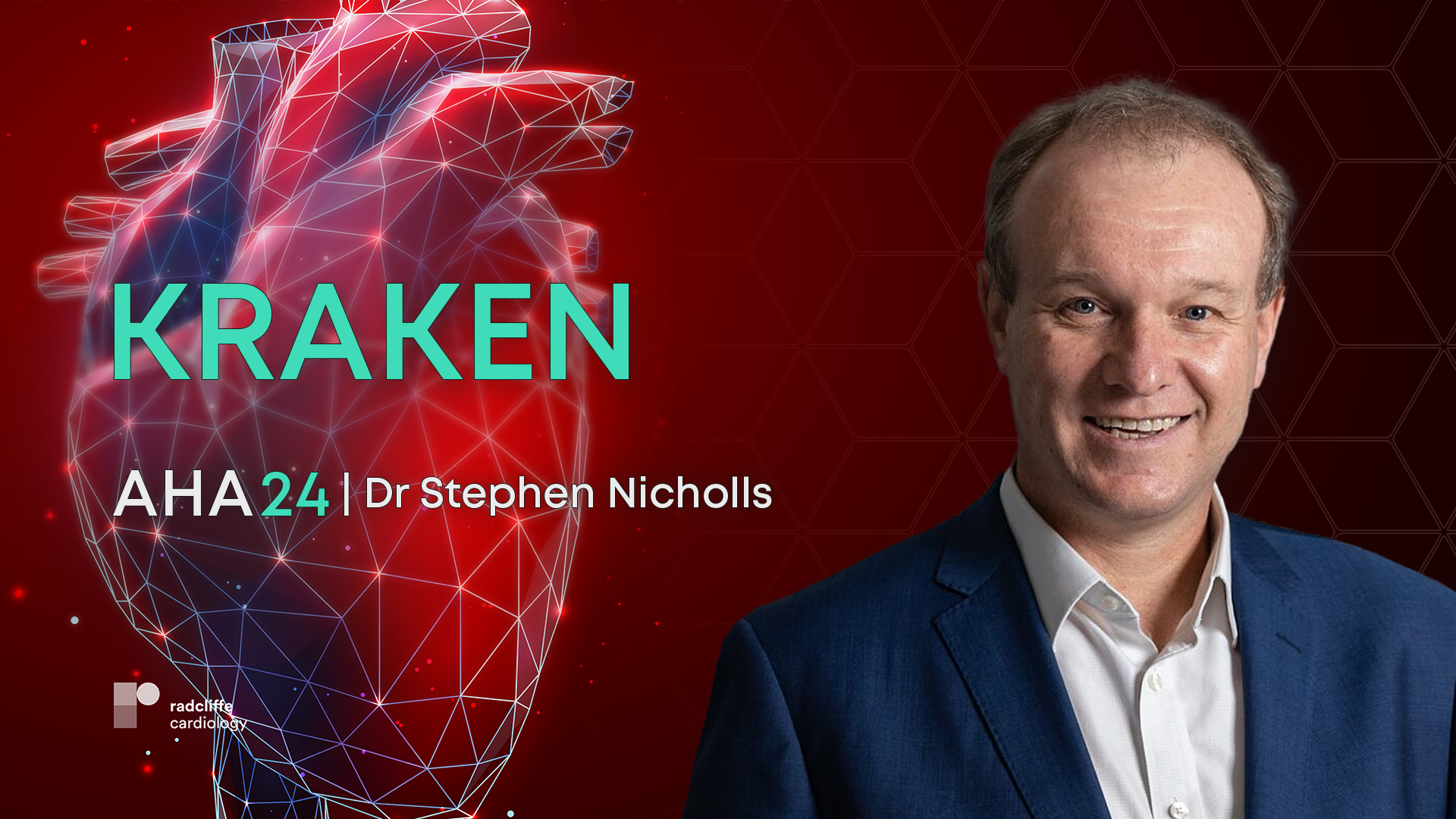 3m 40sPart 3 | Session 13 KRAKEN: Phase 2 Trial of Muvalaplin in High Risk Patients
3m 40sPart 3 | Session 13 KRAKEN: Phase 2 Trial of Muvalaplin in High Risk Patients -
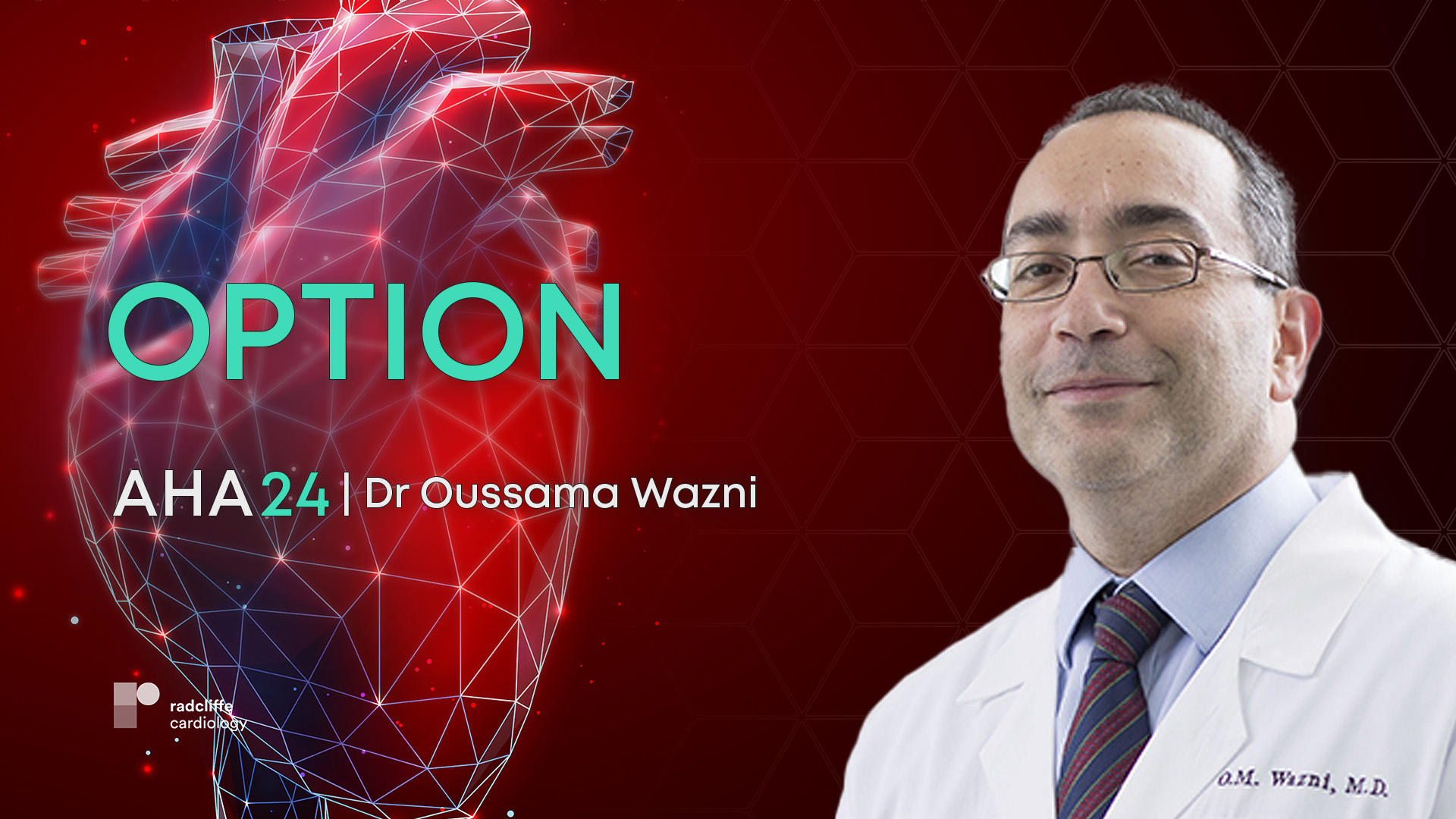 5m 15sPart 3 | Session 14 OPTION: LAA Closure with Oral Anticoagulation after AF Ablation
5m 15sPart 3 | Session 14 OPTION: LAA Closure with Oral Anticoagulation after AF Ablation
-
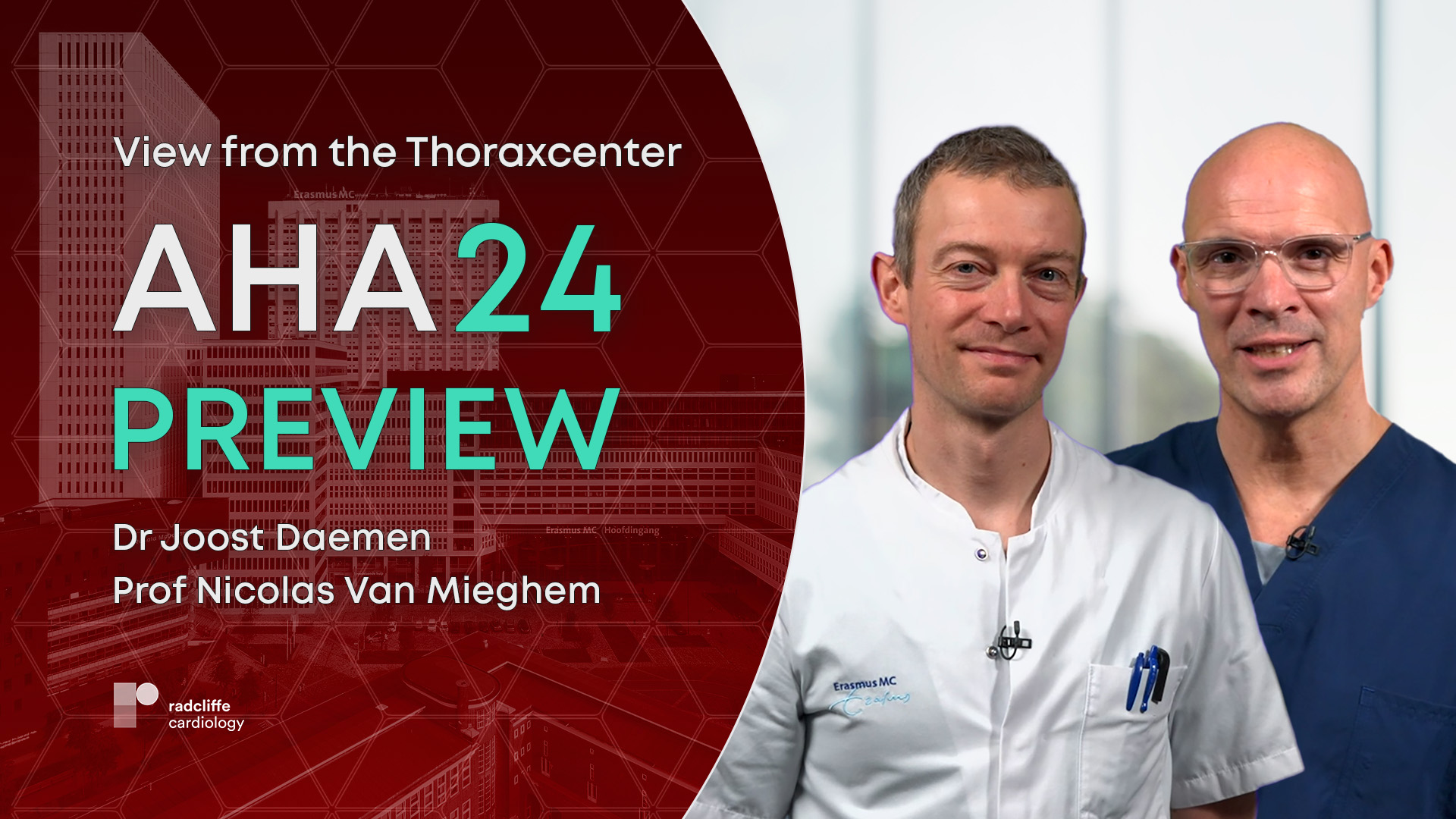 13m 43sPart 1 View from the Thoraxcenter: AHA 24 Late-breaking Preview Joost Daemen, Nicolas M Van Mieghem
13m 43sPart 1 View from the Thoraxcenter: AHA 24 Late-breaking Preview Joost Daemen, Nicolas M Van Mieghem
-
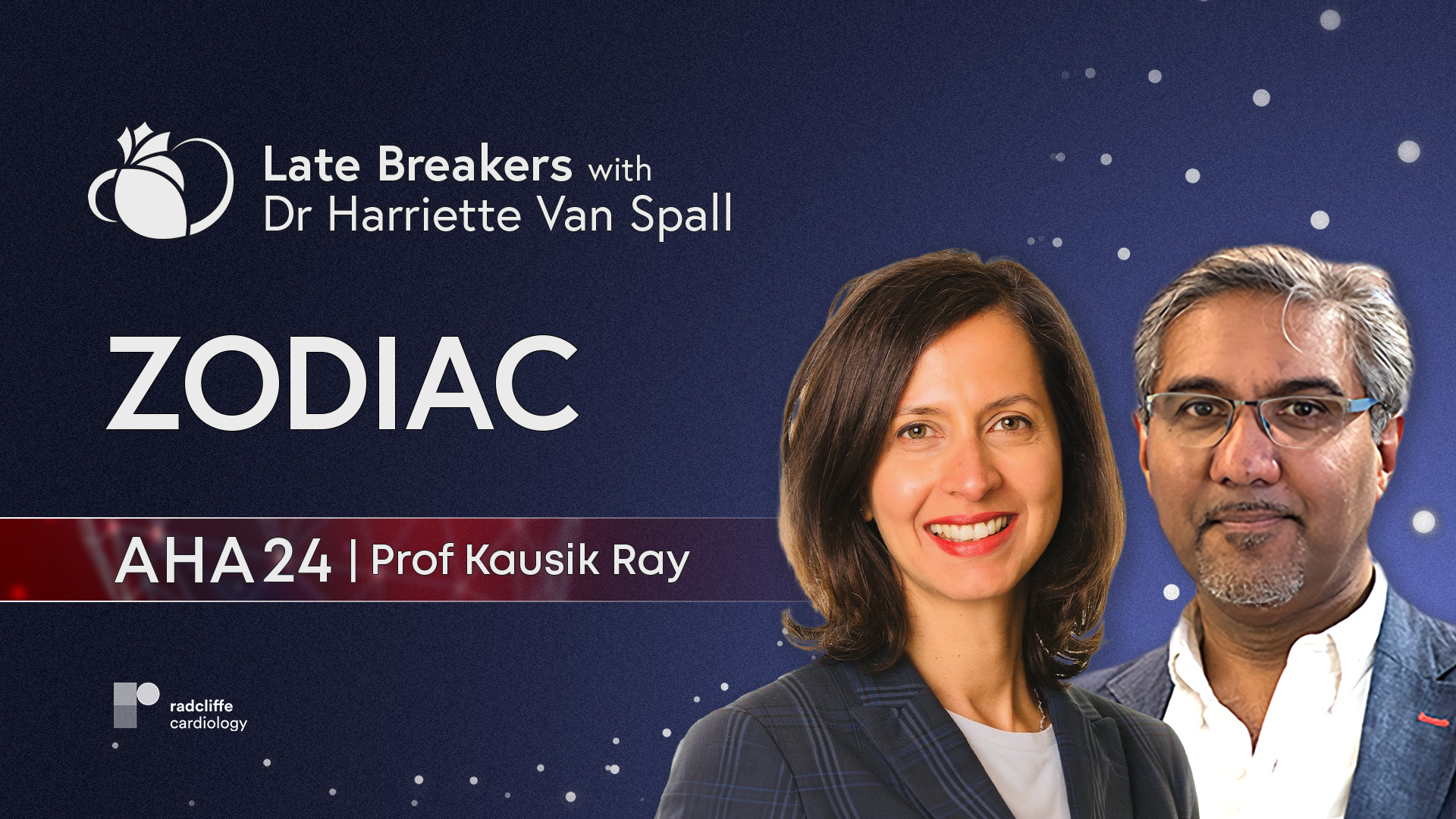 29m 32sPart 2 | Session 1 ZODIAC: Decision Support System to Aid Optimization of Early Lipid Lowering Therapies After ACS Harriette Van Spall, Kausik Ray
29m 32sPart 2 | Session 1 ZODIAC: Decision Support System to Aid Optimization of Early Lipid Lowering Therapies After ACS Harriette Van Spall, Kausik Ray
-
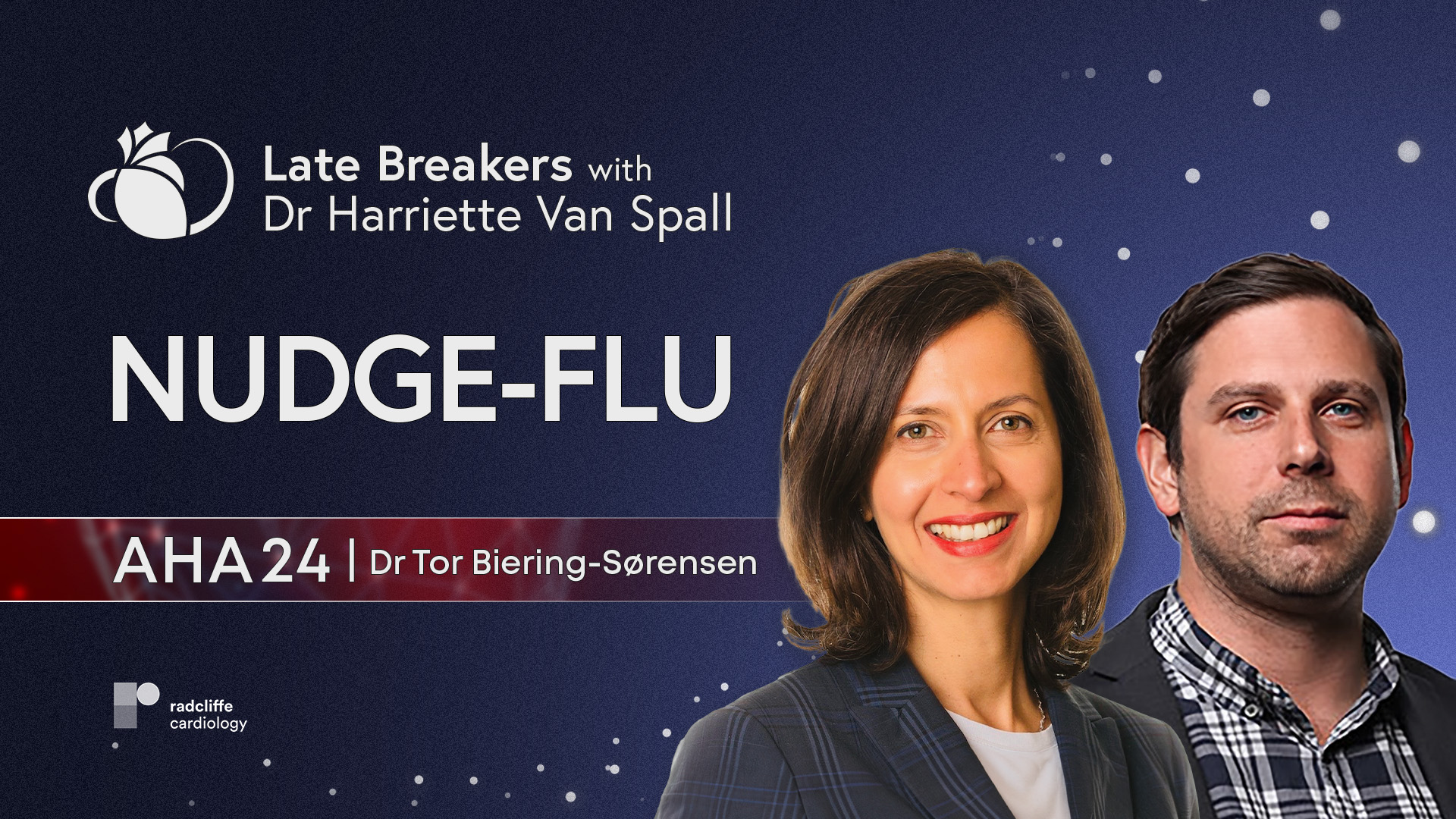 18m 41sPart 2 | Session 2 NUDGE-FLU: Electronic Nudges to Increase Influenza Vaccination in Patients with MI Harriette Van Spall, Tor Biering-Sørensen
18m 41sPart 2 | Session 2 NUDGE-FLU: Electronic Nudges to Increase Influenza Vaccination in Patients with MI Harriette Van Spall, Tor Biering-Sørensen
-
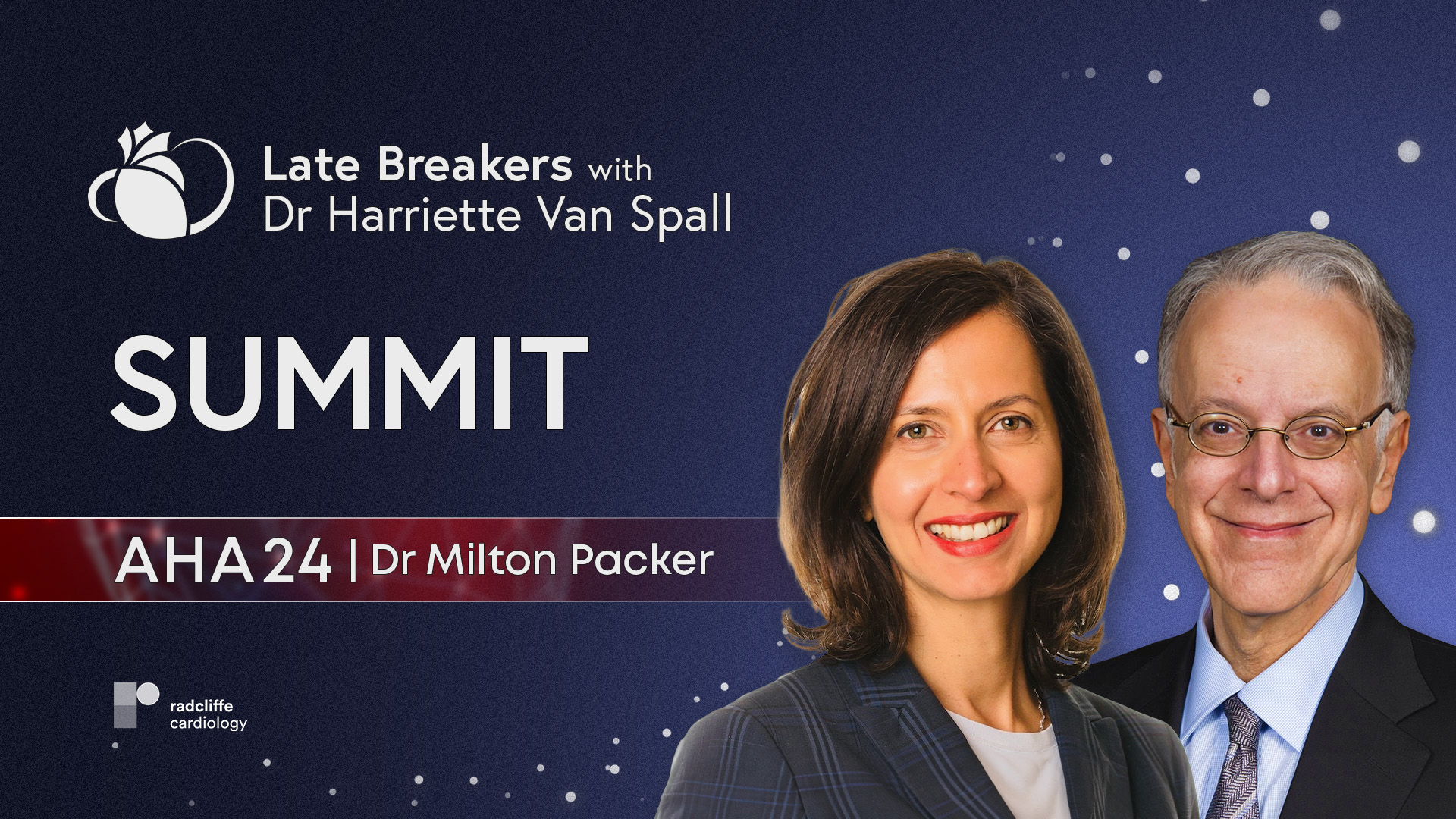 17m 22sPart 2 | Session 3 SUMMIT: Tirzepatide in Patients with HFpEF and Obesity Harriette Van Spall, Milton Packer
17m 22sPart 2 | Session 3 SUMMIT: Tirzepatide in Patients with HFpEF and Obesity Harriette Van Spall, Milton Packer
-
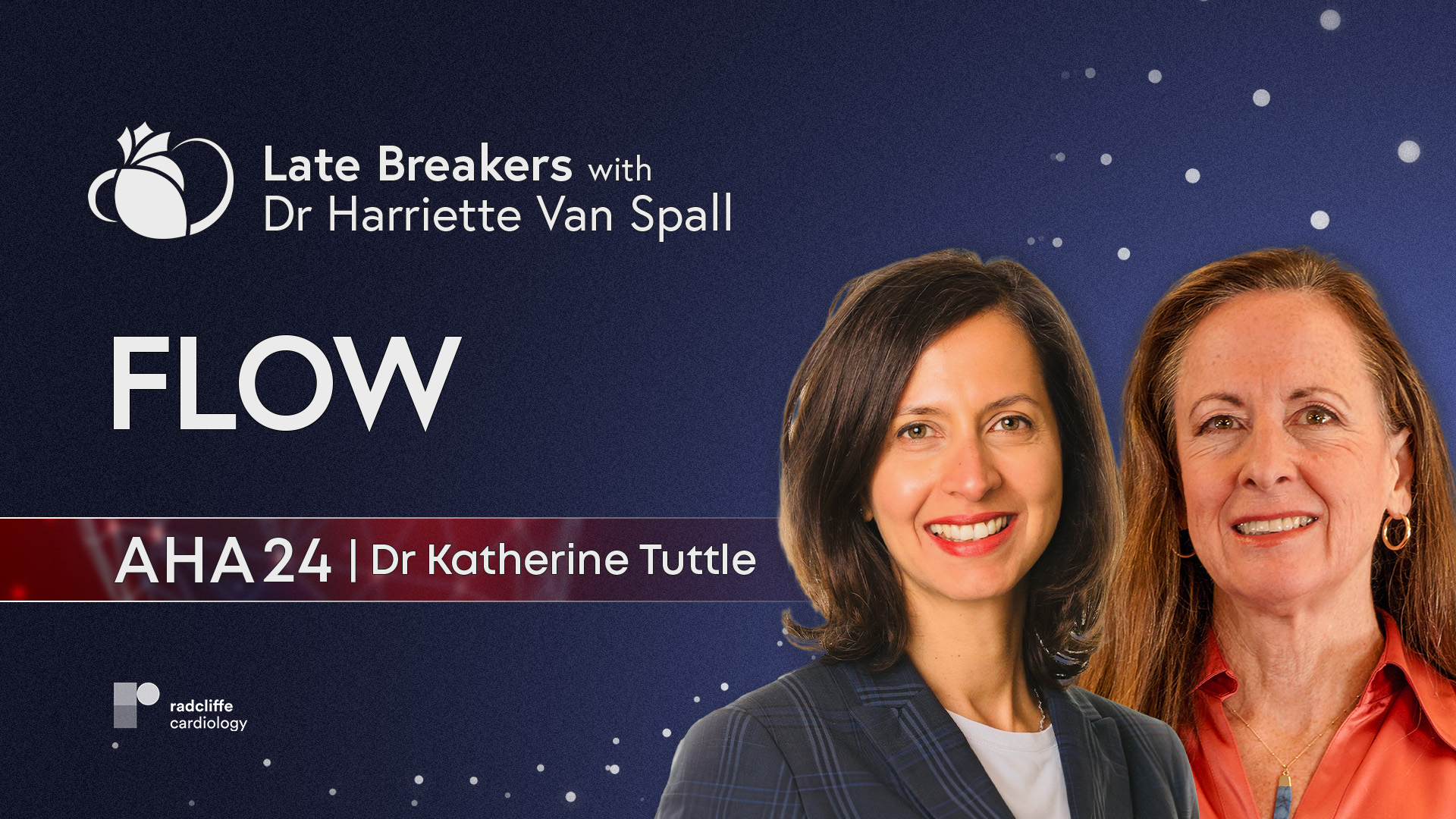 16m 57sPart 2 | Session 4 FLOW: Benefits of Semaglutide on CKD by Cardiovascular Status or Risk Harriette Van Spall, Katherine Tuttle
16m 57sPart 2 | Session 4 FLOW: Benefits of Semaglutide on CKD by Cardiovascular Status or Risk Harriette Van Spall, Katherine Tuttle
-
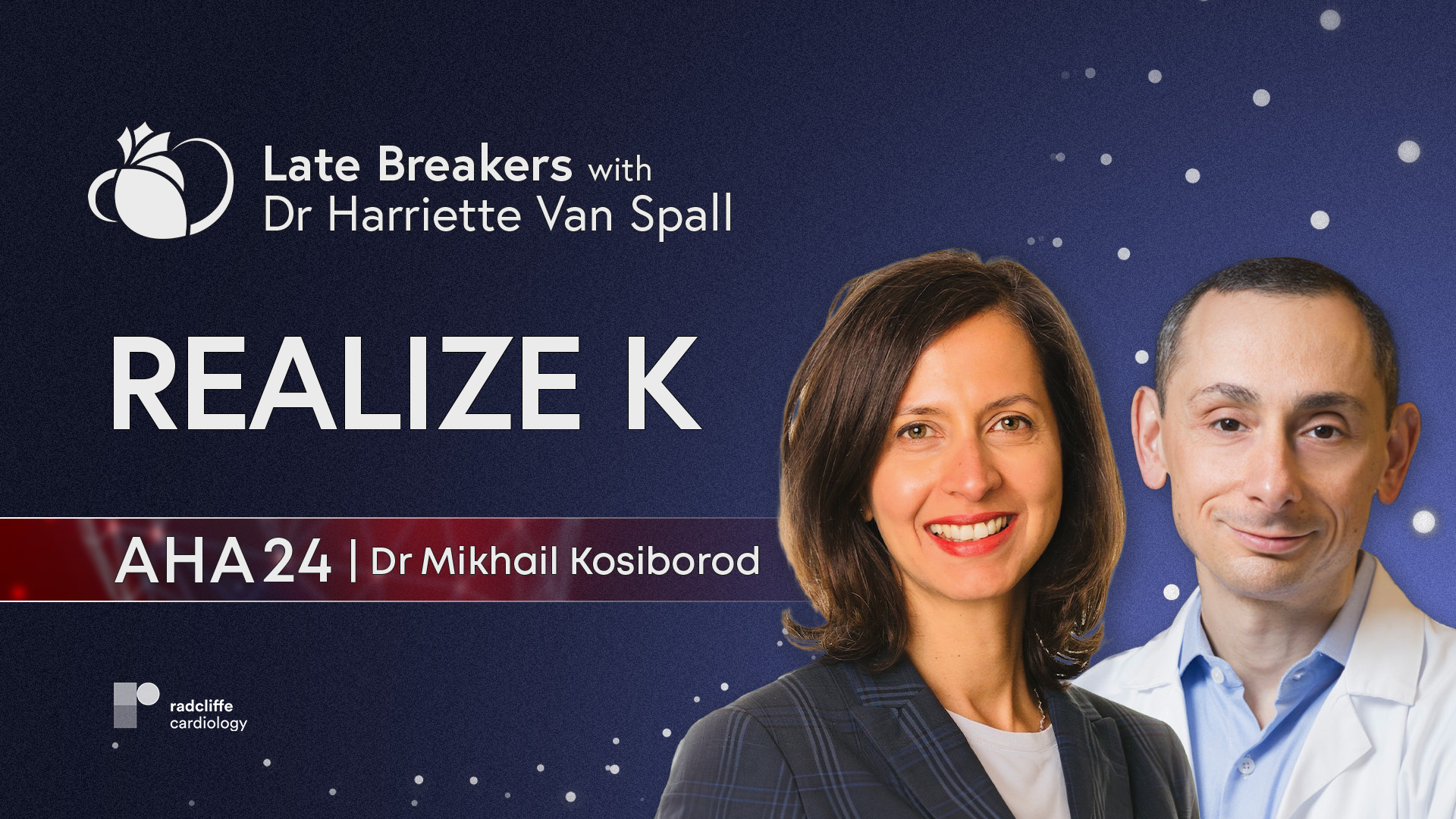 22m 30sPart 2 | Session 5 REALIZE-K: Efficacy and Safety of SZC in Patients with HFrEF Receiving Spironolactone Harriette Van Spall, Mikhail Kosiborod
22m 30sPart 2 | Session 5 REALIZE-K: Efficacy and Safety of SZC in Patients with HFrEF Receiving Spironolactone Harriette Van Spall, Mikhail Kosiborod
-
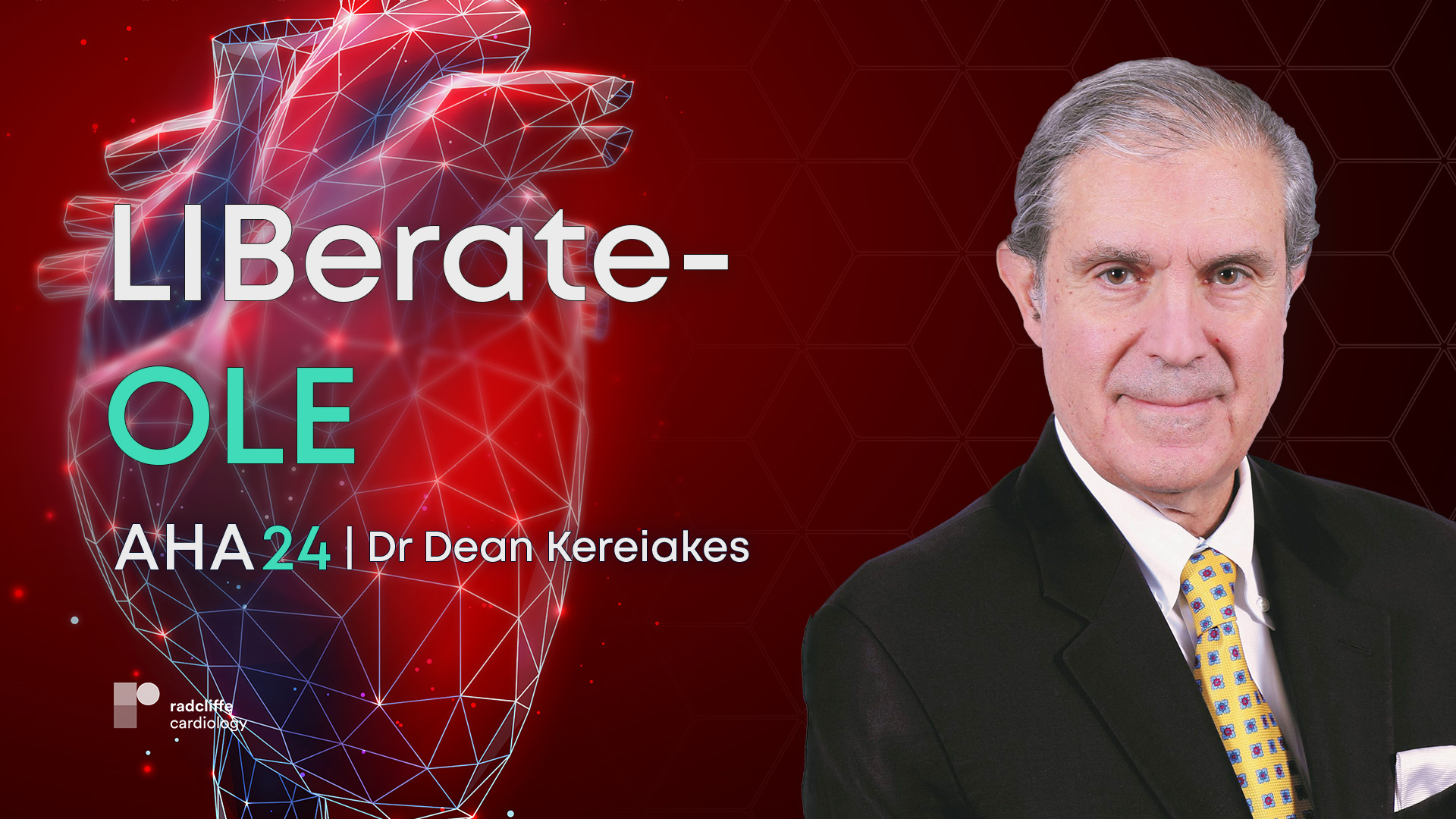 6m 17sPart 3 | Session 1 LIBerate-OLE: Long-Term Efficacy of Lerodalcibep in Patients at High Risk for CVD Dean J Kereiakes
6m 17sPart 3 | Session 1 LIBerate-OLE: Long-Term Efficacy of Lerodalcibep in Patients at High Risk for CVD Dean J Kereiakes
-
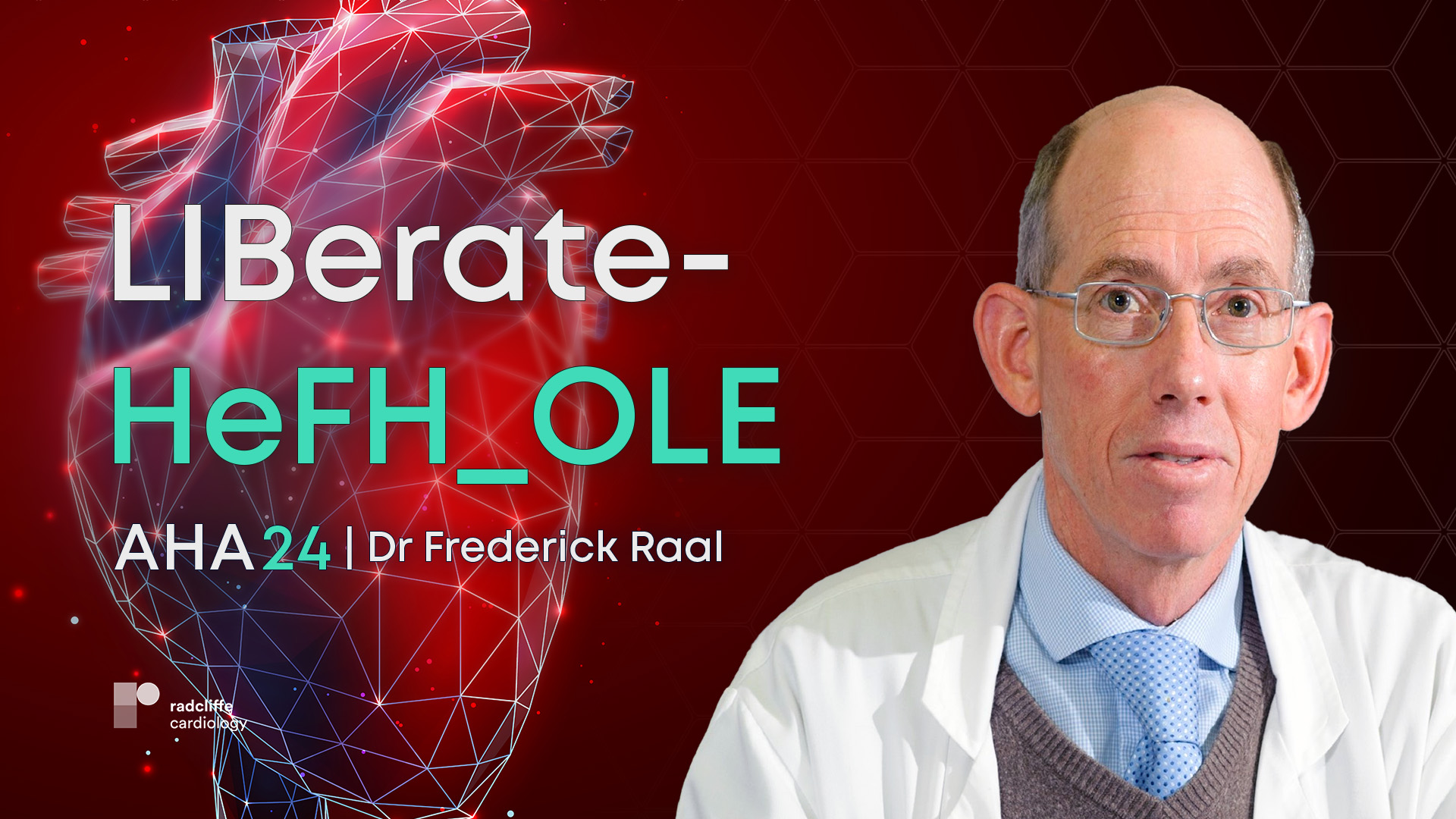 3m 53sPart 3 | Session 2 LIBerate-HeFH_OLE: Lerodalcibep in Heterozygous Familial Hypercholesterolemia Frederick Raal
3m 53sPart 3 | Session 2 LIBerate-HeFH_OLE: Lerodalcibep in Heterozygous Familial Hypercholesterolemia Frederick Raal
-
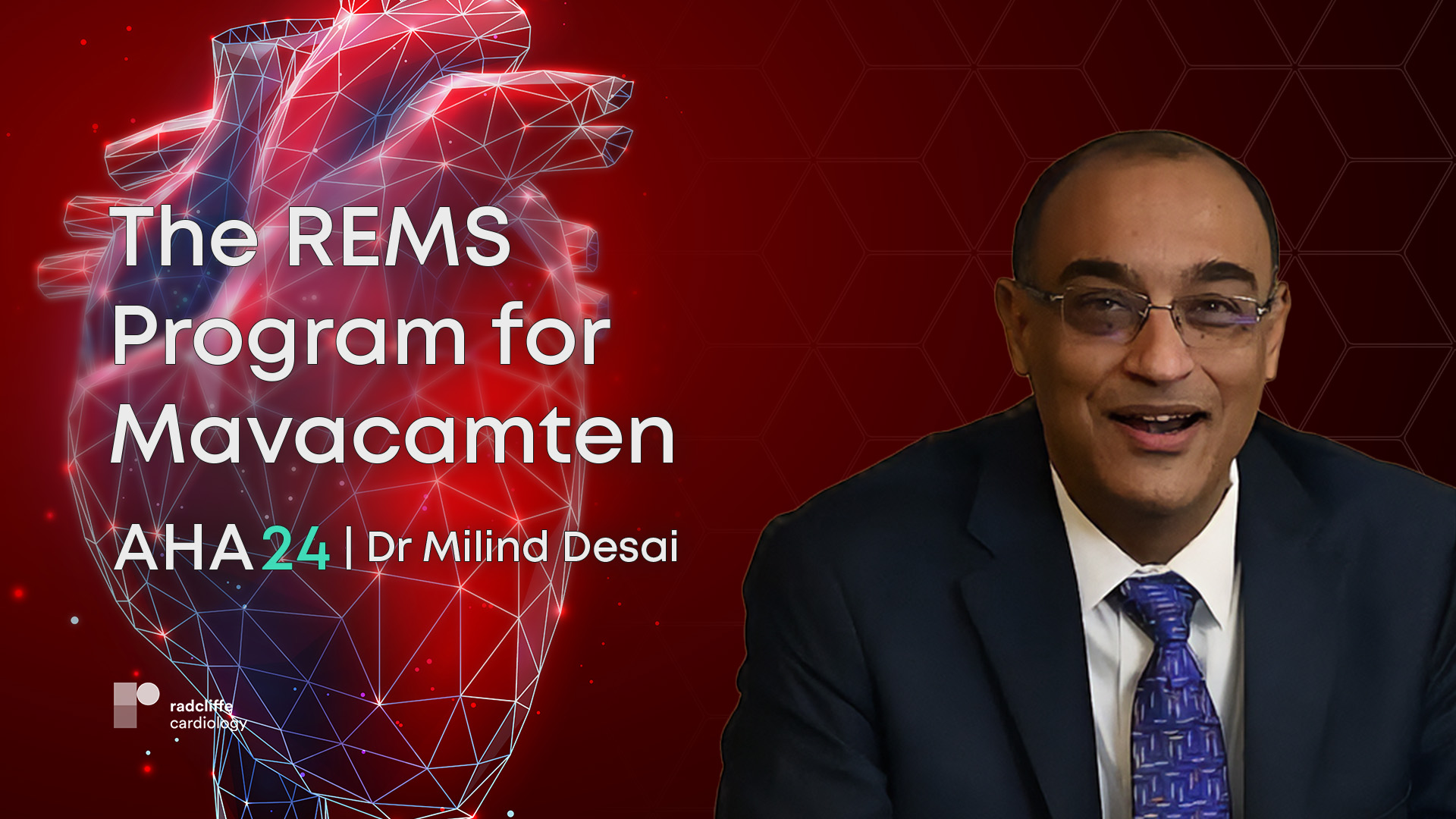 7m 19sPart 3 | Session 3 Mavacamten: Real-World Experience from 22 Months of the REMS Program Milind Y Desai
7m 19sPart 3 | Session 3 Mavacamten: Real-World Experience from 22 Months of the REMS Program Milind Y Desai
-
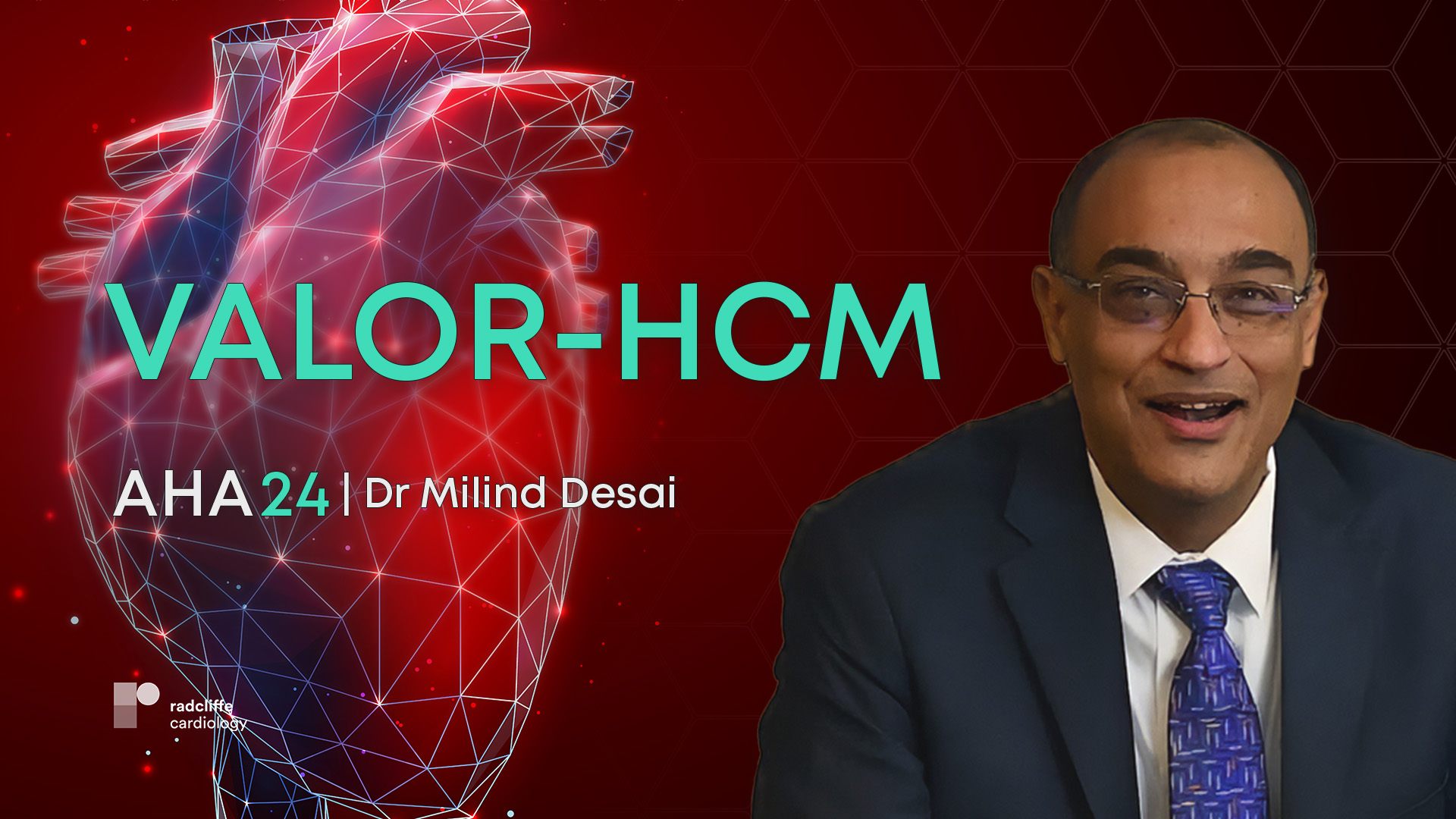 10m 31sPart 3 | Session 4 VALOR-HCM: Mavacamten in Patients with Obstructive HCM Referred for Septal Reduction Therapy Milind Y Desai
10m 31sPart 3 | Session 4 VALOR-HCM: Mavacamten in Patients with Obstructive HCM Referred for Septal Reduction Therapy Milind Y Desai
-
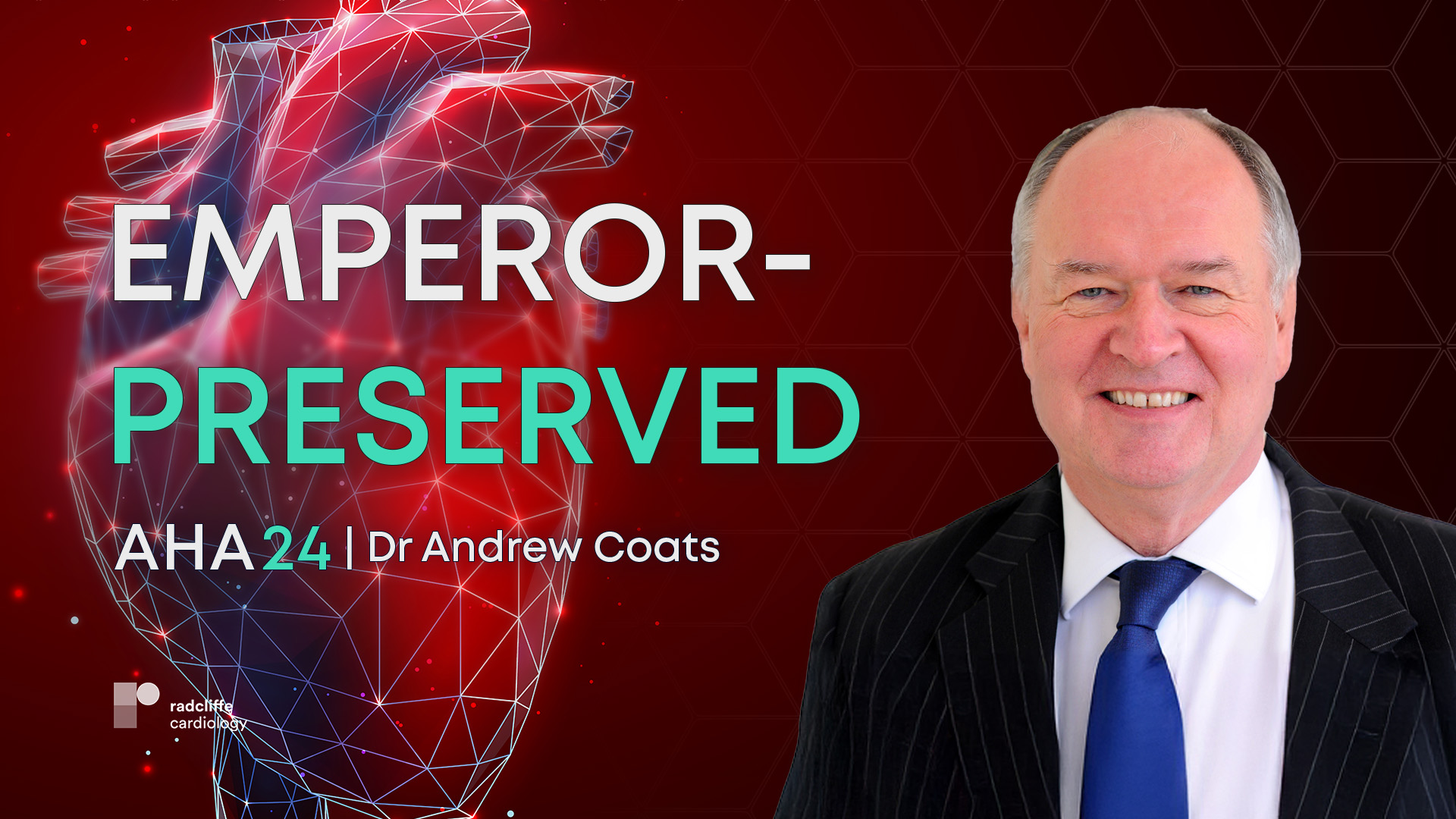 4m 41sPart 3 | Session 5 EMPEROR-Preserved: Diastolic Dysfunction and Empagliflozin in Heart Failure Andrew JS Coats
4m 41sPart 3 | Session 5 EMPEROR-Preserved: Diastolic Dysfunction and Empagliflozin in Heart Failure Andrew JS Coats
Overview
Keep up-to-date with our video collection covering the American Heart Association's 2024 Scientific Sessions in Chicago. For expert insights on the hottest late-breaking and featured science trials, tune in to our collection.
- To catch reviews on the most awaited trials, watch our recurring series View From the ThoraxCenter, hosted by Prof Nicolas Van Mieghem and Dr Joost Daemen (Thoraxcenter, Erasmus MC, Rotterdam, NL).
- Watch out for the Late-Breaker Discussions with Dr Harriette Van Spall for key clinical trial data and its implications for future research.
- Our concise Expert Interviews provide key data, study designs and take-home messages from select faculty.
- Don't miss the key take aways from our Highlights series.
More from this programme
Part 1
View From the Thoraxcenter
Part 2
Late-Breaker Discussions with Dr Harriette Van Spall
Part 3
Expert Interviews
Part 4
Highlights
About the episode
AHA Conference 2024 - Five-Year safety and efficacy follow-up outcomes investigating the non-inferiority of the AMPLATZER Amulet device (Abbott Medical Devices) against the commercially available WATCHMAN (Boston Scientific) device.
Dr Dhanunjaya Lakkireddy (Kansas City Heart Rhythm Institute - HCA Midwest, KS, US) joins us onsite at AHA Conference to discuss the findings from Amulet IDE (NCT02879448).
Amulet IDE is a randomized, multi-center, active control, worldwide trial, were patients with non-valvular atrial fibrillation were randomized 1:1 to receive either the Amulet left atrial appendage (LAA) occlusion device or the WATCHMAN LAA closure device. 1,878 patients were randomized for the trial and were followed up at 45 days, 12 months and 18 months. The primary outcome measures were the composite endpoint rate of procedure-related complications or all-cause death or major bleeding, the composite rate of ischemic stroke or systemic embolism, and the rate of device closure.
Interview Questions:
1. What is the importance behind the Amulet IDE trial?
2. What was the study design and patient population?
3. What were the key findings?
4. What are the take-home messages for practice?
5. What further research is needed in this area?
Recorded on-site at AHA Conference in Chicago, 2024.
Editors: Yazmin Sadik, Jordan Rance.
Videographers: Mike Knight, Dan Brent, Oliver Miles, Tom Green, David Ben-Harosh.
Support: This is an independent interview produced by Arrhythmia Academy.
Faculty Biographies

Dhanunjaya Lakkireddy
Medical Director and Professor of Medicine
Dr Dhanunjaya Lakkireddy is the Medical Director at Kansas City Heart Rhythm Institute and a Professor of Medicine at the University of Missouri, Columbia. As a trained cardiologist he specialises in the research and education of electrophysiology. He is a Chairman of the ACC Electrophysiology Council as well as a member of the Program Committee in the Heart Rhythm Society.
Dr Lakkireddy has received multiple awards and recognitions, including the Professional Leader of the Year from the Asian Chamber of Commerce, Prevention Magazine Integrative Medicine Award, and Ingram's Heroes in Health Care Award.
He continues to serve as the principal investigator for clinical trials and has published more than 350 articles in the field of electrophysiology. Alongside writing articles, Dr. Lakkireddy is the Editor-in-Chief for the Journal of Atrial Fibrillation, Deputy Editor for the Journal of Interventional Electrophysiology, and editorial board member and reviewer for more than…






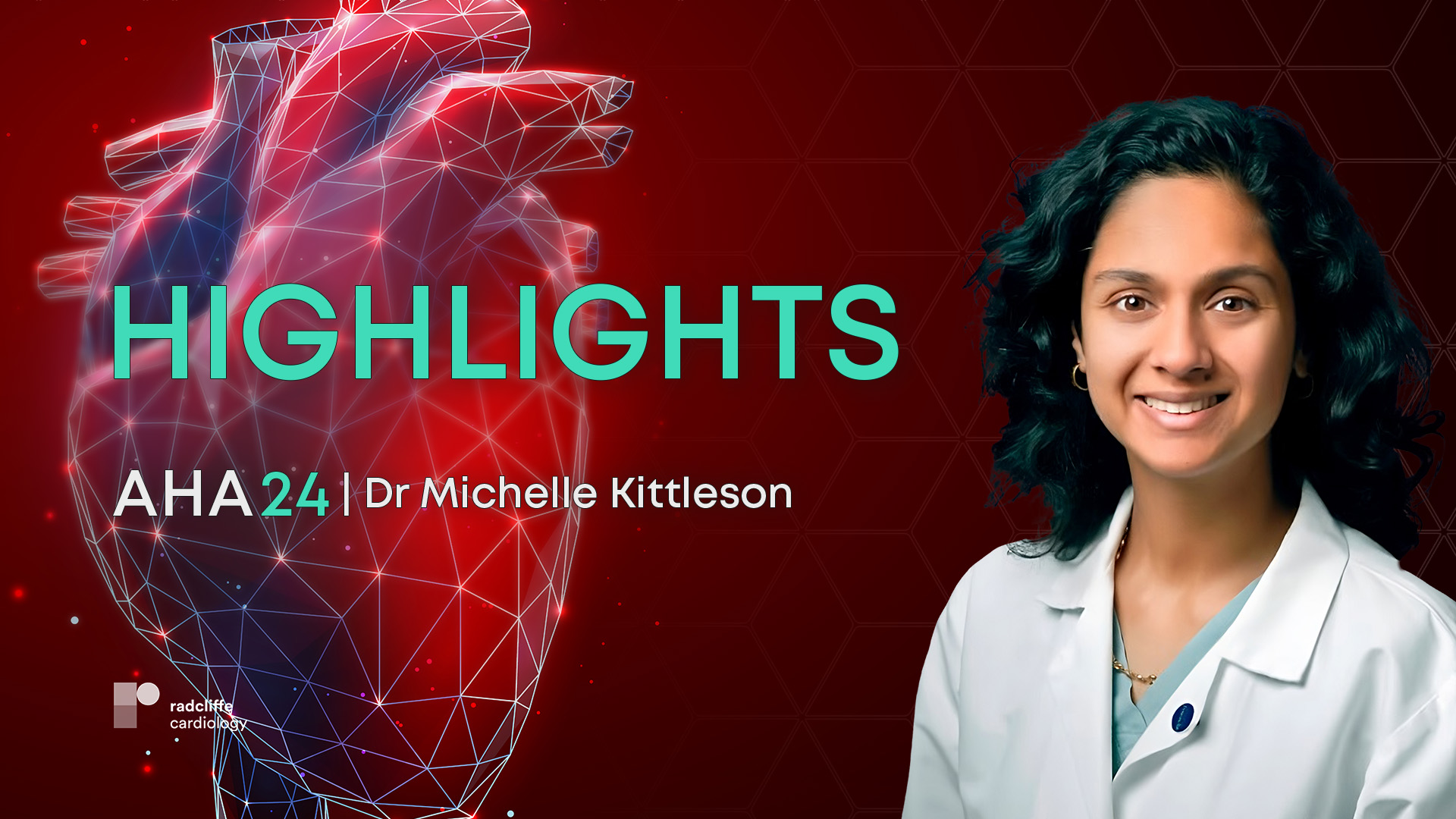
Comments